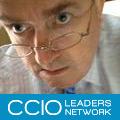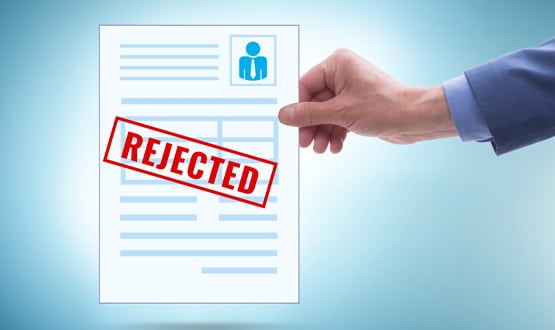Joe’s view: of identity
- 22 April 2015

I have recently been involved in the establishment of a community interest company, and one of the key steps is setting up a bank account.
This involves physically presenting yourself at a high street bank with two forms of photo ID and two utility bills- like people still get paper utility bills.
I printed off my gas and electricity statements and this seemed to suffice; although anyone with a computer and a colour printer could knock up a utility bill good enough to fool a bank teller. However, my passport obviously provides slightly more robust evidence of who I am.
Je suis moi-meme unique
The process reminded me of an episode a couple of years ago. I was driving a minibus full of junior ski racers to the British Ski Championships in the French Alps when one of the kids fell ill on the journey with a chest infection.
This threatened to infect the cream of Britain’s junior downhill team. We needed antibiotics and fast.
I pulled over at the pharmacy in a small village in the foothills of the mountains and, in my best French (passable since you ask), requested a broad spectrum antibiotic.
The pharmacist explained politely that this medication was available “uniquement disponible avec une prescription d'un médecin.”
“Mais je suis médecin,” I explained. The pharmacist rightly asked me to prove it. I obliged with my passport and with my driving licence (sadly, I’d left the gas bill at home). Close but no cigar.
The pharmacist wanted more “Googlez moi?” I suggested. This brought up my LinkedIn profile, my iwantgreatcare profile and some EHI articles.
I could see the pharmacist was close to believing in me so I closed the deal with a trip to the General Medical Council online register (which, interestingly, does not hold a picture of me – but my birth date tallied with my passport).
“Ok, what can I get you?” said the pharmacist, kindly, in the perfect English all French professionals bring out once they’ve decided you’ve mangled their language enough. The rest of the transaction was plain sailing and the patient duly improved.
Apple is watching you
If you’ve been following this column for any length of time, you’ll know that I have had previously had my identity confused with a deceased Joe McDonald of the same birth date.
This did terrible damage to my credit rating for several months so I’m pretty keen on being able to verify who I am in a trustworthy and effective way.
Increasingly, I am asked to authenticate myself using accounts I have established with say, Microsoft or Facebook. The credit reference agencies are also in the identity verification business.
On a recent trip to London I discovered that I no longer need an Oyster card. My bank card now does the job. Tap in, identified and located. Tap out, identified, located and paid.
Meanwhile, my Apple ID allows Apple to know where I am at all times, as long as I enable location services, and the Prevention of Terrorism Act means I can be tracked relatively easily.
Good thing too, some will say. Others are understandably nervous about their privacy and the reach of big brother; hence the regular rise and fall of the idea of a national identity scheme.
But wouldn’t it be nice for consenting adults to have a safe, secure way of identifying themselves to their beloved and trusted NHS provider and any one else for that matter?
NHS verify?
I am proposing this identity system as an opt-in only model; or it will rightly be suffocated at birth by the intelligent, capable and organised privacy lobby.
Spine 2 was the health IT success of the year just gone, maybe of the decade, maybe ever. Open source, a fraction of the cost of its predecessor, and delivered on time.
Spine 2 has given the lie to the idea that open source software couldn’t support a major enterprise; this backbone of the NHS is as major as it gets (the “you’ll never get me up in one of those” brigade who criticised the Wright Brothers were, for the most part, horse salesmen).
But maybe Spine 2 could be the start of something even bigger. It could be the name and my technical ignorance, but the word ‘Spine’ suggests it could support a great deal more than its current functions.
So how about a Spine 2 driven, open source identity service for consenting adults? One that could verify anyone with an NHS Number to their NHS provider?
This could deliver an immediate safety benefit (right medication/amputation for the right patient). But it could deliver a commercial benefit, as well.
Every time a commercial operation used your NHS ID card to verify who you are, they could pay a small fee to Spine 2, allowing the scheme to fund itself.
The NHS is actually uniquely well placed to verify people’s ID, having real contacts with local communities. And thanks to Spine 2, it looks as if it has the IT to make it all work.
While people are registering they could record their privacy settings to include their willingness to have their data shared for a research basis. Producing your NHS membership card at the pharmacy might also exempt you from prescription charges.
Do you want chips with that?
As a man with a potentially fatal allergy to a very common medicine, I have occasionally contemplated having the details of my allergy tattooed on my skin. What holds me back is the question of where. Buttock, forearm, hand?
Other early adopters in my position might contemplate the ID option developed for pets. My dog has a sub-dermal chip that identifies him uniquely as Pasha McDonald.
This is scanned when we go to the vet – and would be very useful if he ever gets lost in France and is unable to manage a five stage authentication process.
So how about a Spine 2 National ID verification scheme with a chipping option? Far-fetched? Well, can you suggest other ways in which we can build on the success of Spine 2?


Joe McDonald
Joe McDonald is a practising NHS consultant psychiatrist. Over the past five years he has been an NHS trust medical director and national clinical lead for IT at NHS Connecting for Health – a stint that included 18 months as medical director of the Lorenzo delivery team!
His experiences in the National Programme for IT in the NHS have left him with a passion for usability and "end user knowledge networks.” He is the founding chairman of the National Mental Health Informatics Network. Motto: we don't get fooled again. Follow him on twitter @CompareSoftware




